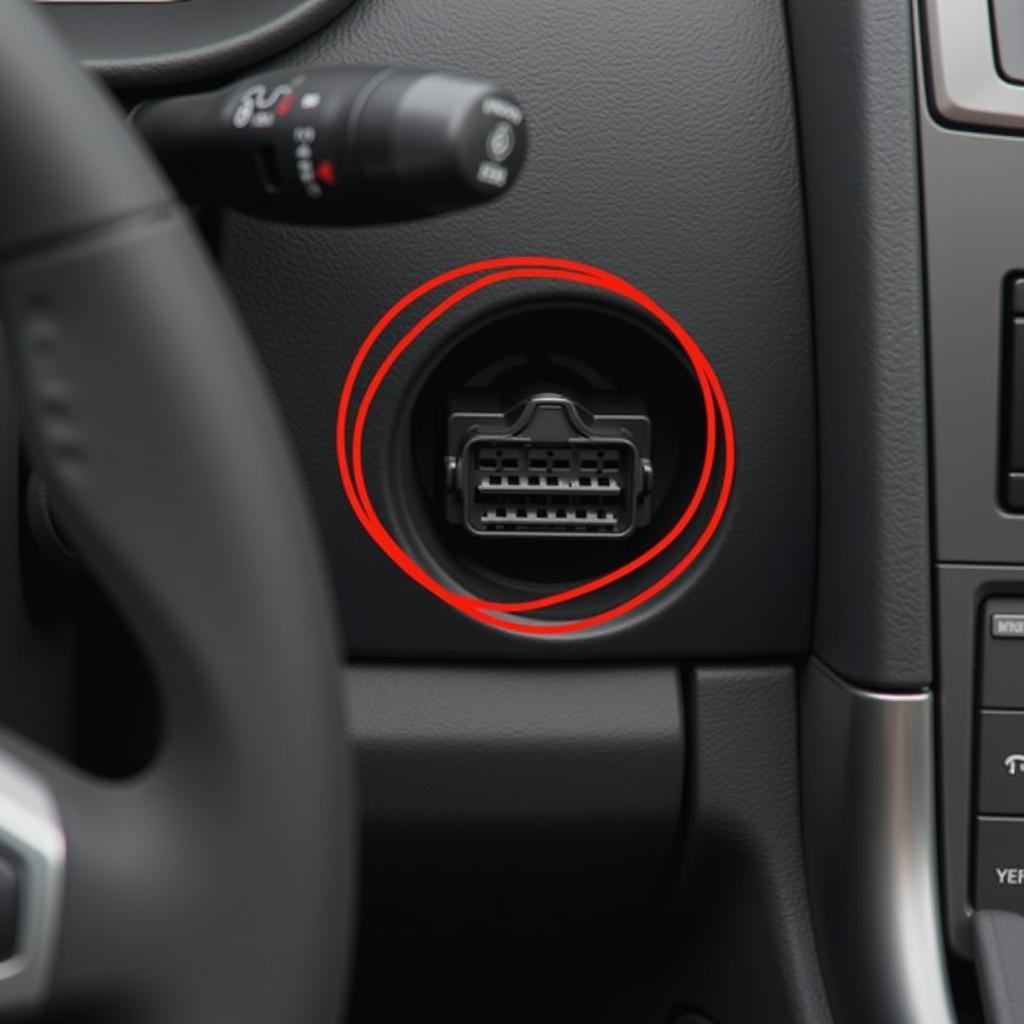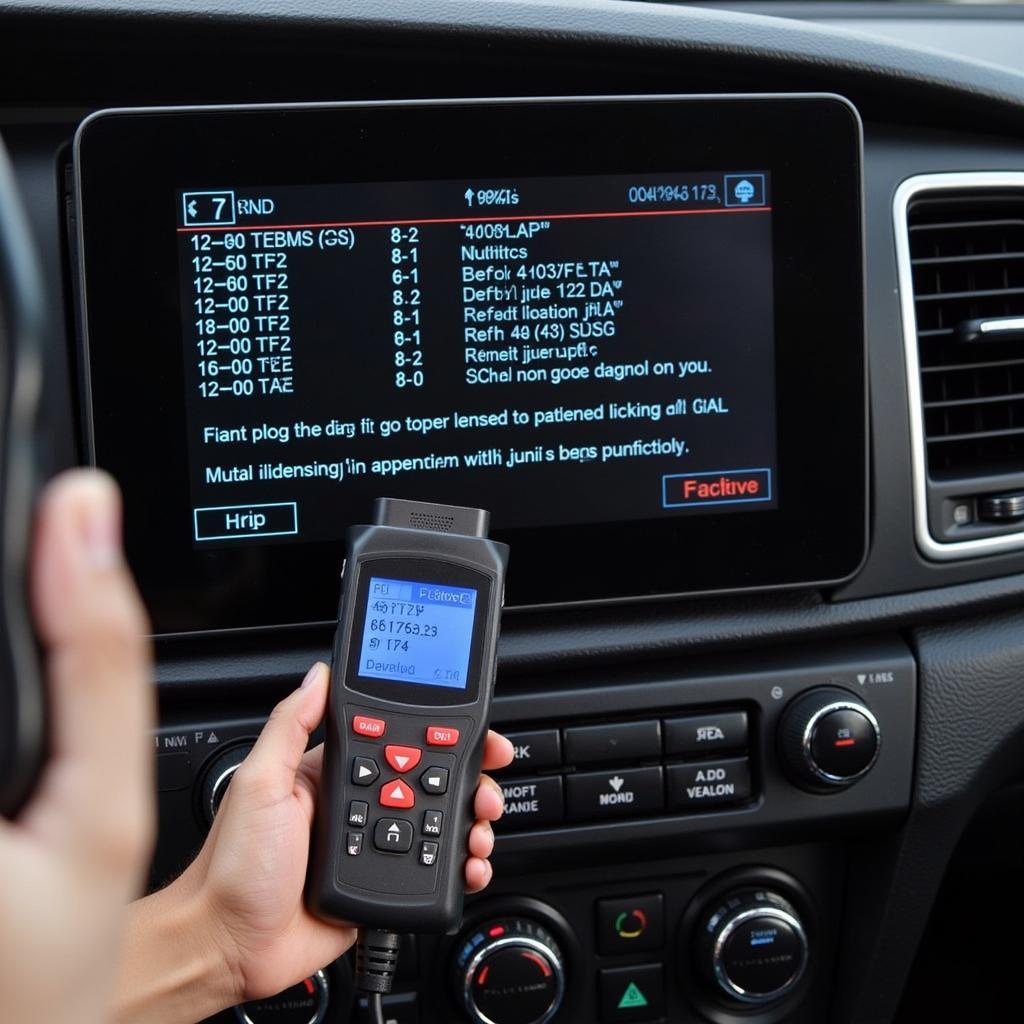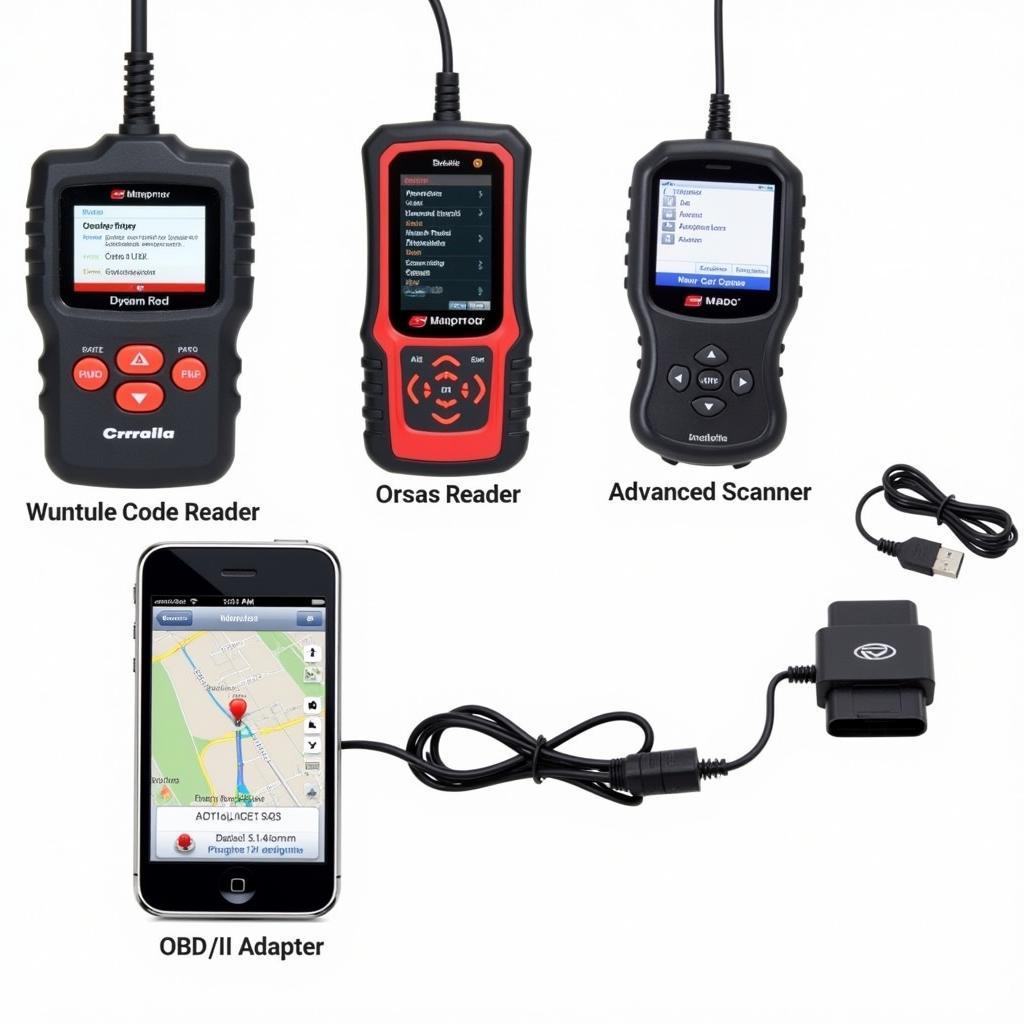The Smart Car Diagnostics Port, often referred to as the OBD-II port, has revolutionized how we understand and maintain our vehicles. This unassuming connector acts as a gateway to your car’s computer system, providing a wealth of information about its health and performance. But what exactly is a smart car diagnostics port, and how can you leverage its capabilities?
Demystifying the Smart Car Diagnostics Port: What is it?
The smart car diagnostics port, standardized as OBD-II (On-Board Diagnostics, second generation) in 1996, is a 16-pin connector typically located under the driver’s side dashboard. This port allows external devices, such as car diagnostic scanners, to communicate with your car’s Engine Control Unit (ECU) and other onboard computers.
 Finding the OBD-II Port
Finding the OBD-II Port
Why is the Smart Car Diagnostics Port So Important?
Before the OBD-II standard, diagnosing car problems was a more time-consuming and expensive process. Mechanics often relied on experience and intuition to isolate issues, leading to guesswork and potential misdiagnoses. The smart car diagnostics port changed all that by providing a standardized way to access real-time data from your car’s systems. This data includes:
- Engine RPM: Provides information about the engine’s speed.
- Vehicle Speed: Displays the current speed of the car.
- Coolant Temperature: Shows the engine coolant temperature, essential for preventing overheating.
- Oxygen Sensor Readings: These readings indicate how efficiently your engine is burning fuel.
- Fuel System Status: Displays information about the fuel delivery system.
- Emission Data: Shows the level of pollutants being emitted by your car.
 Accessing Diagnostic Information
Accessing Diagnostic Information
Who Benefits from the Smart Car Diagnostics Port?
The smart car diagnostics port benefits a wide range of users, from everyday car owners to professional mechanics:
-
Car Owners: By using a basic OBD-II car diagnostics scanner, you can read and understand basic diagnostic trouble codes (DTCs), also known as check engine lights. This knowledge empowers you to address minor issues yourself or make informed decisions when seeking professional help.
-
DIY Enthusiasts: For those who enjoy tinkering with their vehicles, the smart car diagnostics port opens up a world of possibilities. Advanced scanners and software allow you to delve deeper into your car’s systems, monitor performance parameters, and even make minor adjustments.
-
Professional Mechanics: Mechanics rely heavily on the smart car diagnostics port for accurate and efficient vehicle diagnosis and repair. Advanced scanners provide access to a comprehensive range of data, enabling them to pinpoint issues quickly, troubleshoot problems effectively, and verify repairs.
Exploring Different Types of Smart Car Diagnostics Ports
While the OBD-II standard ensures a degree of uniformity, variations in the smart car diagnostics port exist depending on the make and model of your vehicle.
-
Standard OBD-II Connector: This is the most common type, found on most gasoline-powered vehicles manufactured after 1996.
-
Manufacturer-Specific Connectors: Some manufacturers, particularly in the luxury and high-performance segments, may use slightly different connectors or protocols, even if they comply with the OBD-II standard.
-
Electric Vehicle Connectors: Electric vehicles (EVs) and hybrid vehicles may have additional pins or connectors to provide access to data specific to their electric drive systems.
Choosing the Right Car Diagnostic Tool
The market offers a wide range of car diagnostic tools, each catering to different needs and budgets.
-
Basic Code Readers: These affordable handheld devices can read and clear basic DTCs, providing a starting point for troubleshooting.
-
Advanced Scanners: Professional-grade scanners offer comprehensive diagnostic capabilities, including live data streaming, actuator tests, and advanced programming functions.
-
Smartphone Apps: Numerous smartphone apps utilize the OBD-II port in conjunction with a Bluetooth or Wi-Fi adapter to provide diagnostic information and real-time vehicle tracking.
 A Range of Diagnostic Tools
A Range of Diagnostic Tools
Maximizing the Potential of Your Smart Car Diagnostics Port
The smart car diagnostics port is a powerful tool that can help you stay on top of your car’s maintenance, troubleshoot issues effectively, and potentially save money on repairs. Whether you’re a car enthusiast or simply want to be more informed about your vehicle’s health, understanding and utilizing your car’s smart diagnostics port can be incredibly empowering.
Expert Insight: “The smart car diagnostics port has revolutionized car repair. It allows us to pinpoint problems with precision, eliminating guesswork and unnecessary repairs. It’s an indispensable tool for any mechanic.” – John Miller, ASE Certified Master Technician.
FAQs about Smart Car Diagnostics Ports
Q: Is my car compatible with OBD-II?
A: Most gasoline-powered cars manufactured after 1996 are OBD-II compliant. You can usually find the OBD-II port under the driver’s side dashboard.
Q: Can I use any diagnostic scanner with my car?
A: While most scanners will work with standard OBD-II protocols, some vehicles may require manufacturer-specific software or adapters.
Q: Can I damage my car by using a diagnostic scanner?
A: Using a reputable scanner and following instructions carefully poses minimal risk to your car. However, it’s essential to avoid tampering with settings or commands you don’t understand.
Q: Can I use a smart car diagnostics port to improve my car’s performance?
A: While some advanced tools allow for minor adjustments, it’s crucial to exercise caution. Making unauthorized modifications can potentially void your warranty or even damage your car.
Q: Where can I find reliable used car diagnostic equipment?
A: You can often find quality used car diagnostic equipment for sale online or through specialized retailers.
Need Further Assistance with Car Diagnostics?
If you need expert advice on car diagnostics or assistance with choosing the right diagnostic tools, don’t hesitate to reach out. Contact us via WhatsApp: +1(641)206-8880 or Email: [email protected]. Our team of car diagnostic specialists is available 24/7 to answer your questions and provide the guidance you need.

Leave a Reply